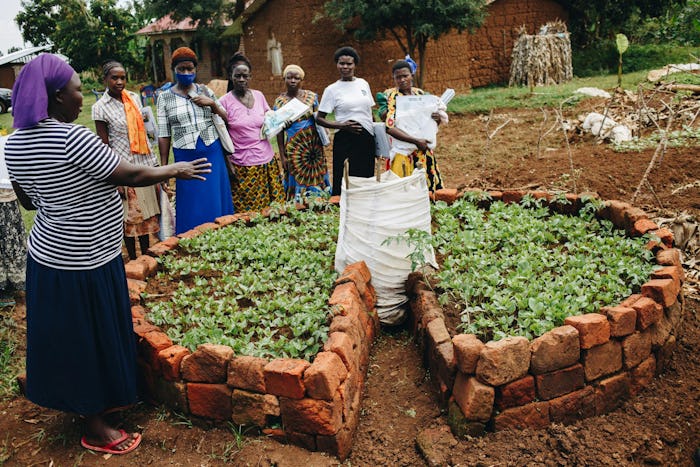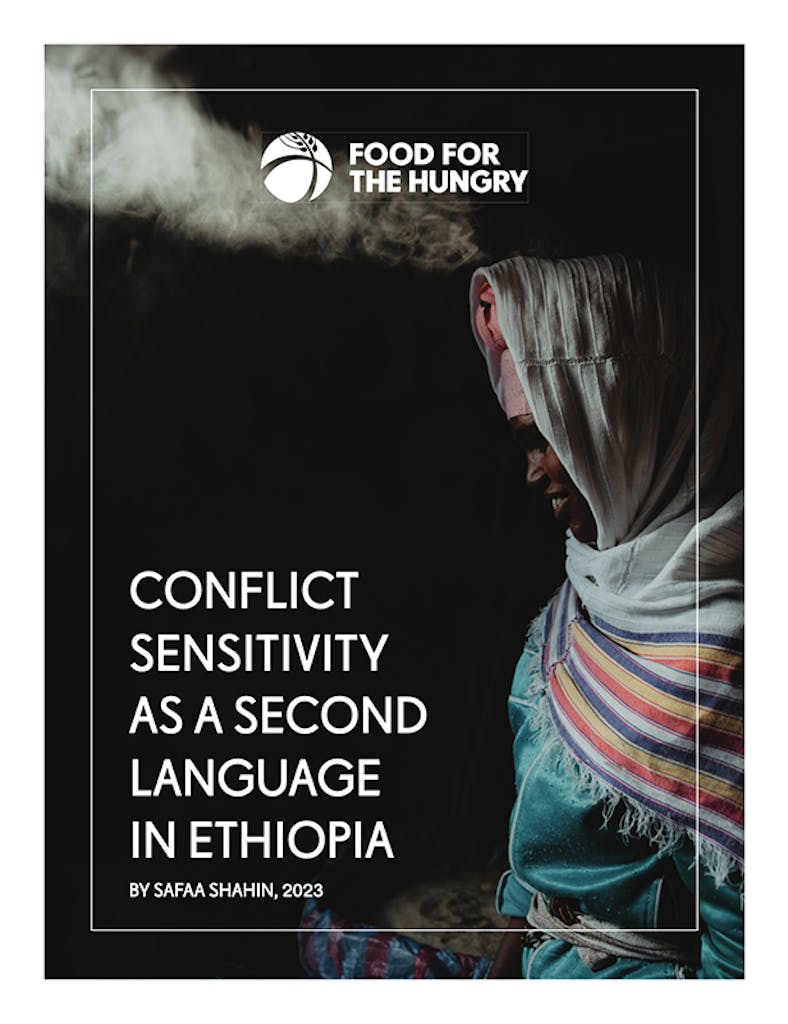Resilience
Resilience in Action: Building Flourishing Communities
Food for the Hungry’s Resilience Framework offers a holistic approach that bridges the humanitarian and development divide to help communities to withstand crises, adapt to change, and transform their circumstances for long-term flourishing. We do this by co-creating solutions with communities through systems thinking and broad-based partnerships to strengthen capacities within institutions, systems and markets to build resilience in hard places.
What drives resilience?
Since fragility is an imbalance of higher risks and lower capacities to manage those risks within fragile settings, international efforts must work with societies and governments to foster a range of resilient and positive coping capacities to better absorb shocks and stress, adapt in the face of crises, and to transform formal systems and institutions to get to the root causes of risks and crises that cause extreme poverty.
A core driver of resilience building is what we call social capital, which involves “bonding” within communities, “bridging” across communities, and “linking” between communities and formal institutions and systems for access to information, resources, and responsive action. Social capital helps to better mitigate risks and cope with shocks and stressors.
Test your resilience knowledge!
Social capital is a core driver of resilience. What are the three types of social capital?
Current development approaches focus on meeting human needs, but to build resilience, what do we also need to focus on?
Resilience Approach
Resilience-Based Systems Practice is grounded in three interconnected pillars:
- Systems Thinking: Deeply analyzing how root causes, risks, and crises interact across individuals, institutions, markets, and systems to identify strategic leverage points where interventions can have significant, multiplying effects.
- Systems Strengthening: Reinforcing broad frameworks (governance, economic, institutional) and specific service delivery systems (WASH, health, education, disaster management, social protection, energy) to enhance long-term resilience.
- Systems Transformation: Shifting power dynamics, reforming policies, and embedding resilience into how societies function, guided by justice, dignity, and reconciliation.
The Framework specifically promotes “Flourishing+”, which encompasses core areas of human well-being—Mental and Physical Well-being, Productive Learning, and Asset Creation—plus critical supporting systems like WASH, Humanitarian Assistance, Energy, Social Protection, and Climate Action that sustain and protect communities in the face of risk.
2023 Concordia Annual Summit: Regenerative Agriculture, Food Security and Nutrition
This session explores the symbiotic relationship between regenerative agriculture and food security, understanding how regenerative practices play a pivotal role in maintaining soil health, promoting biodiversity, and reducing the ecological footprint of agriculture, while exploring the critical question of how to ensure adequate nutrition for a growing global population without compromising the planet’s resources.
Food for the Hungry is a Christian relief and development organization with a vision to see all forms of human poverty ended worldwide. We believe that when a community is equipped to care for its most vulnerable members, everyone is served, and poverty is eliminated. That’s why we seek to develop communities by focusing on children. Sponsor a child today and set them on a path to a better future: https://www.fh.org/give/sponsor-a-child/
Country-Level Resilience
Ethiopia
Developing a conflict-sensitive approach must inform organizations’ decision-making processes to ensure that their assistance effectively addresses people’s needs and contributes positively to their dignity and safety. This guidance document is FH’s contribution to international development, humanitarian assistance, and peacebuilding in Ethiopia.
FH has developed this practical guidance drawing on experience and expertise in conflict-sensitive programming, promoting best
practices that are conflict sensitive, and addressing complex challenges faced by vulnerable populations in Ethiopia and beyond.
Guatemala
FH works to empower indigenous women in Guatemala by strengthening their resilience capacities to absorb and recover from the compounding negative impacts of climate change, COVID-19, and other crises. Indigenous women in remote rural communities are highly vulnerable due to social exclusion of indigenous peoples, COVID -19, inflation, climate change—which has a multiplier effect that increases social, political, and economic tensions—and gender inequality, all of which perpetuate the cycle of poverty and exclusion. FH implements this work in partnership with indigenous women and girls, government, bilateral and multilateral institutions, private sector, and civil society. Building upon evidence from research and assessments, FH is targeting key risks, threats, and stressors faced by indigenous women and girls in rural areas of Guatemala, has identified their formal and informal capacities, and supports them to have a wide impact on their communities and society.
Uganda
Even before global crises of COVID-19, worsening climate change, economic shocks, and increasing conflicts, Karamoja was one of Uganda’s most fragile regions. The area experiences drought, hunger, disasters, instability, marginalization, disease outbreaks, price shocks, and extreme poverty. Now, these global crises are contributing to new and complex patterns of economic volatility, food insecurity, forced displacement, and mounting local tensions in the region. Food for the Hungry, Office of the Prime Minister, and the Karamoja Resilience Secretariat discussed the region’s changing risk landscape and explored opportunities for strengthening the often overlooked but vital resilience capacities within communities, institutions, markets, and social systems to weather mounting risks and protracted crises.
Resources
Resilience for US policy and resource allocation:
Brookings:From fragility to resilience: Recommendations for implementing the US global fragility strategy
Resilient Statebuilding
OECD: Resilient state-building: A new approach for the hardest places
Columbia: Revisiting Statebuilding in the Hardest Places
World Bank Fragility Forum: Adaptive Management in Fragile Contexts: Navigating Uncertainty in Hard Places
Country Platforms
World Bank: Country platforms in fragile states: A new path for development cooperation
Anti-corruption approaches for resilience in fragile contexts
ACE SOAS Consortium: From Fragility to Resilience: SOAS-ACE’s contribution to an emerging paradigm SOAS Consortium

“Making good on the global promise to leave no one behind depends on addressing the root causes of current and emerging crises, preventing their re-occurrence, and strengthening the resilience of those most vulnerable.”
–United Nations

